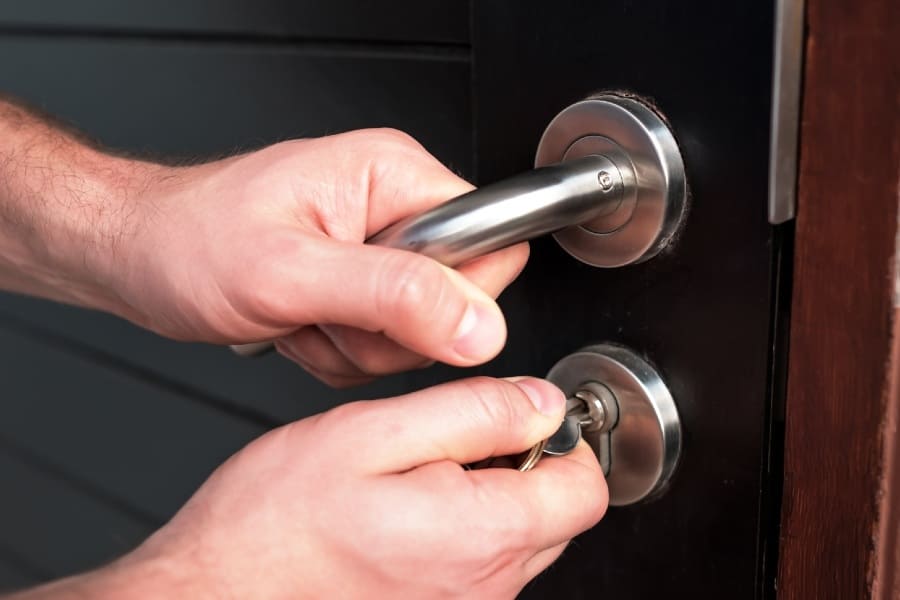Introduction
Door knobs are essential fixtures used to open and close doors. They come in various styles, materials, and functionalities, offering both security and aesthetic appeal to homes and commercial spaces.
Types of Door Knobs
- Passage Door Knobs: These knobs are use on doors that do not require a locking mechanism, such as closet or hallway doors.
- Privacy Door Knobs: Designed for rooms that need privacy, such as bedrooms and bathrooms, these knobs come with a locking mechanism.
- Dummy Door Knobs: These non-functional knobs are purely decorative and are often used on doors where a latch or lock isn’t necessary, like pantry or closet doors.
Materials
- Brass: Known for its durability and classic appeal, brass door knobs are timeless additions to any home.
- Stainless Steel: Offering a sleek and modern look, stainless steel door knobs are resistant to corrosion and easy to maintain.
- Glass: Adding elegance and sophistication, glass door knobs are popular in vintage and antique-inspired interiors.
Styles
- Traditional: Featuring classic designs and finishes, traditional door knobs complement conventional home décor styles.
- Modern: Sleek lines and minimalist designs characterize modern door knobs, perfect for contemporary living spaces.
- Antique: With intricate detailing and vintage finishes, antique door knobs add old-world charm to any door.
Installation
- Pre-Drilled Holes vs. Not: Some door knobs come with pre-drilled holes for easy installation, while others require drilling, depending on the door type and knob style.
- DIY vs. Professional Installation: While DIY installation is possible for those with experience, professional installation ensures proper alignment and functionality.
Maintenance Tips
- Cleaning and Polishing: Regular cleaning with a mild detergent and polishing with a soft cloth keeps door knobs looking shiny and new.
- Lubrication: Applying lubricant to hinges and internal mechanisms prevents squeaking and ensures smooth operation.
- Tightening Loose Screws: Periodically checking and tightening loose screws prevents door knobs from becoming wobbly or detached.
Security Features
- Keyed Entry: Door knobs with keyed entry provide added security by requiring a key to unlock them from the outside.
- Privacy Locks: Privacy door knobs feature locking mechanisms for rooms requiring privacy, such as bedrooms and bathrooms.
- Smart Lock Compatibility: Some door knobs are compatible with smart lock systems, offering advanced security features like remote access and activity monitoring.
Design Considerations
- Aesthetic Appeal: Choose door knobs that complement the overall aesthetic of your home, whether it’s modern, traditional, or eclectic.
- Matching with Home Décor: Consider the existing décor elements when selecting door knobs to ensure they harmonize with the overall design scheme.
- Ergonomics: Opt for door knobs that are comfortable to grip and easy to operate for everyday convenience.
FAQs
How do I choose the right door knob?:
Consider factors such as functionality, style, and security requirements when selecting a door knob.
What are dummy door knobs used for?:
Dummy door knobs are decorative and are typically use on doors where a latch or lock isn’t need.
Can I install a door knob myself?
DIY installation is possible with the right tools and knowledge, but professional installation may be preferable for optimal results.
How do I maintain door knobs?:
Regular cleaning, lubrication, and tightening of screws are essential for maintaining door knobs.
Are smart door knobs secure?:
Smart door knobs offer advanced security features but require proper setup and maintenance to ensure maximum security.
What materials are best for door knobs?:
Materials like brass, stainless steel, and glass are popular choices for their durability and aesthetic appeal.
Unlock the potential of your doors with the perfect door knobs that blend security, style, and functionality seamlessly into your living space.


